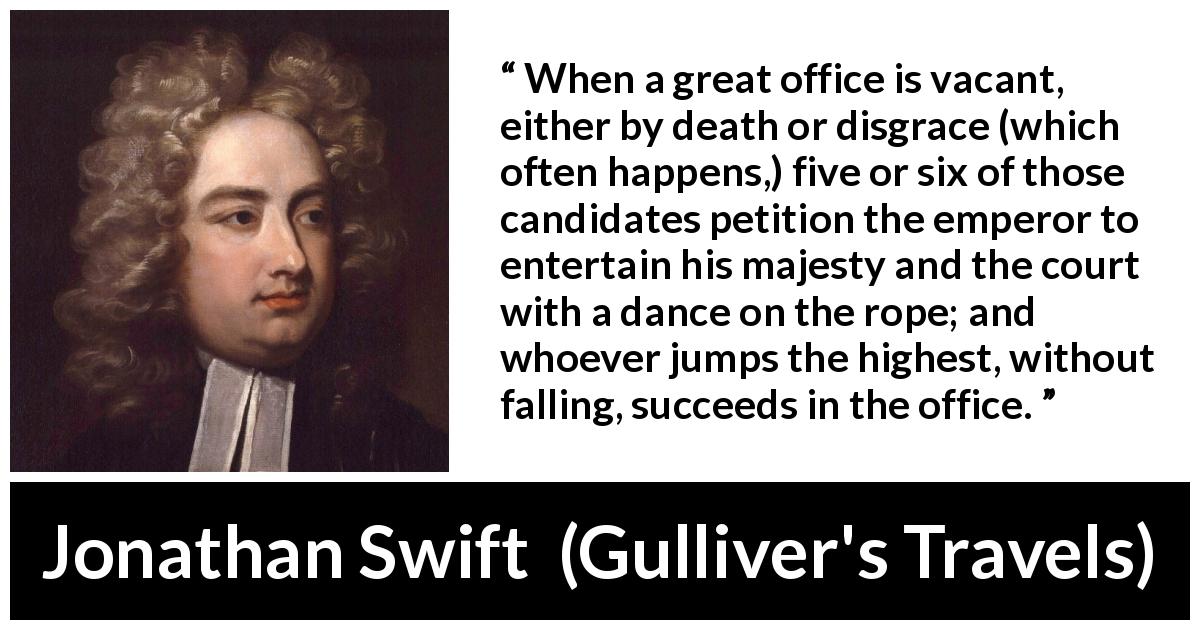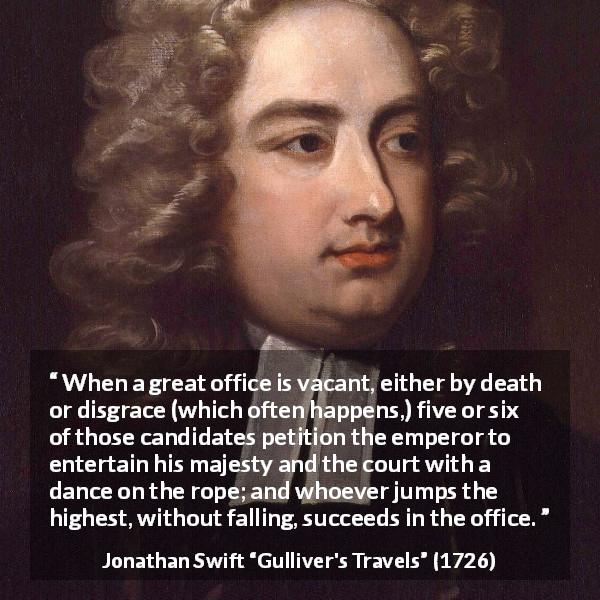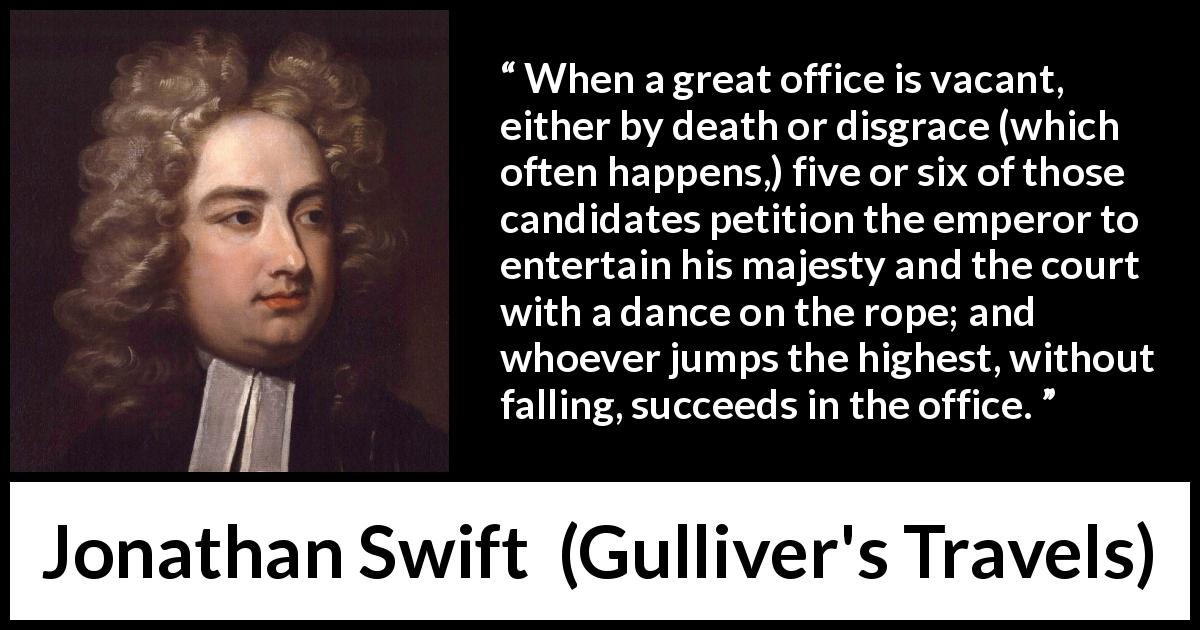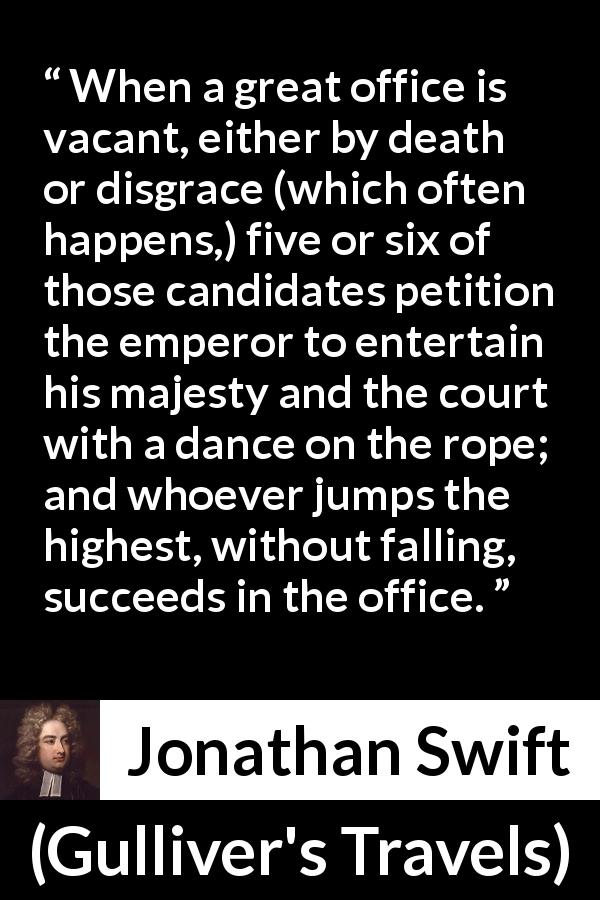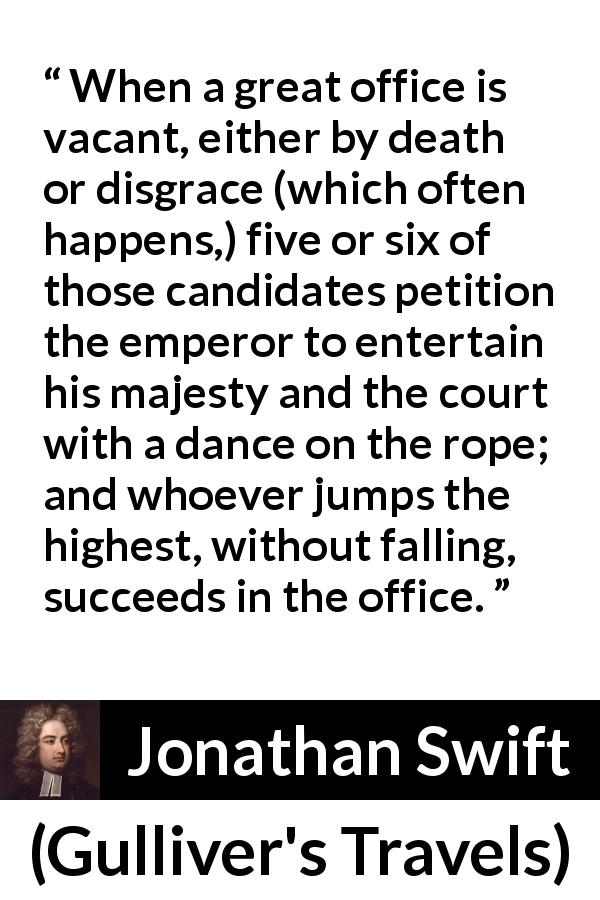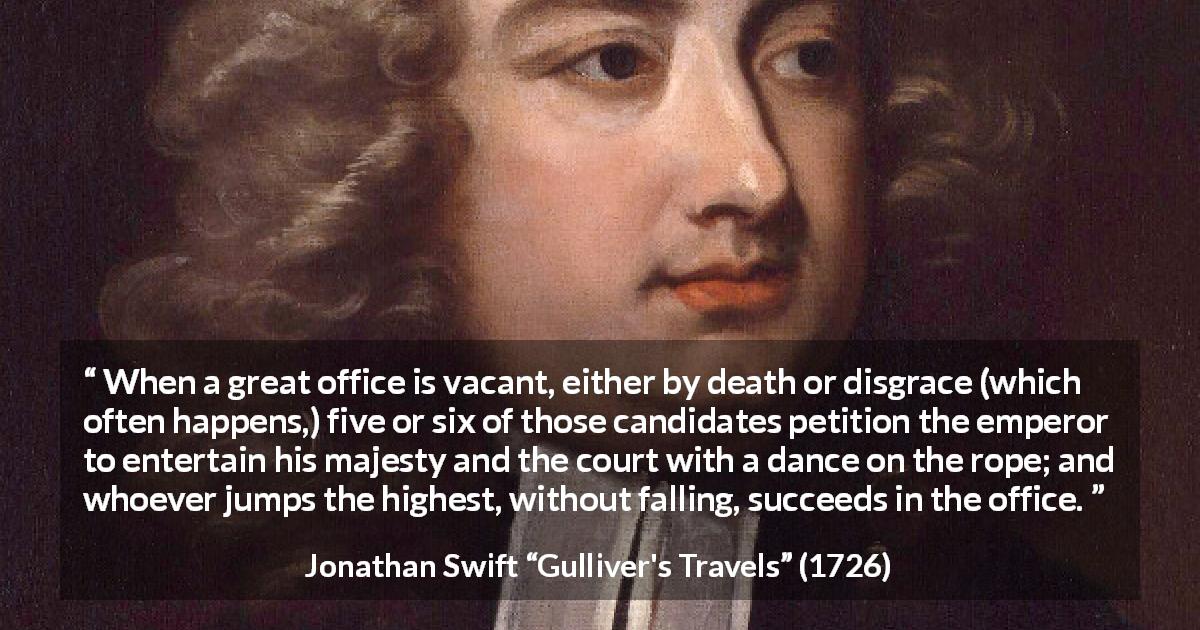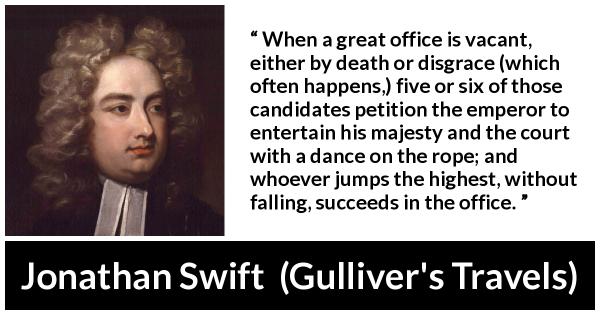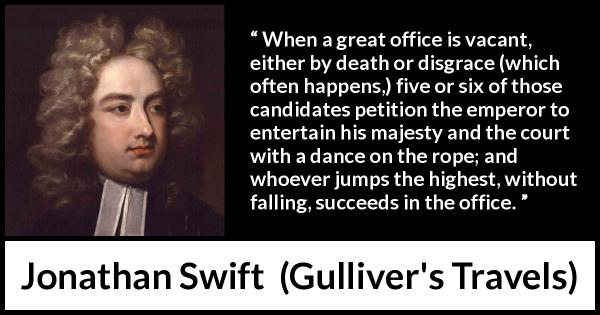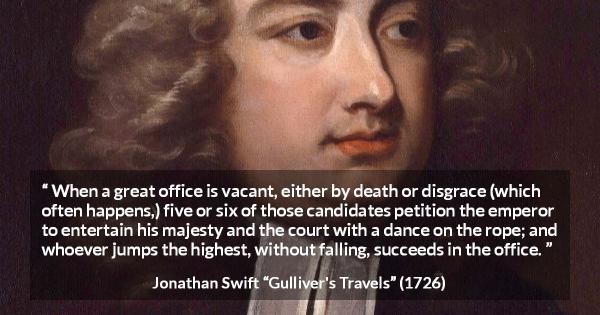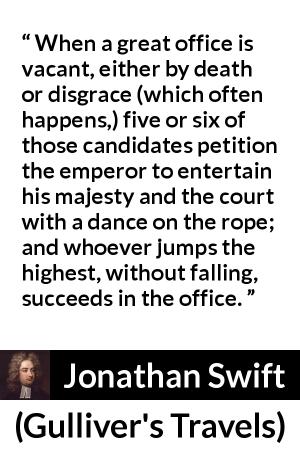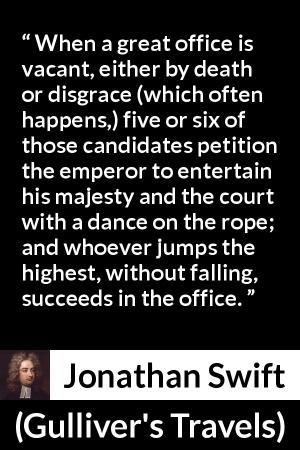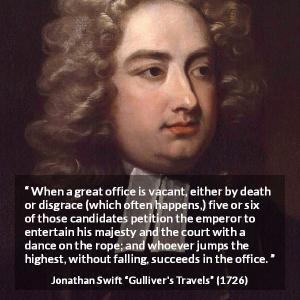“ When a great office is vacant, either by death or disgrace (which often happens,) five or six of those candidates petition the emperor to entertain his majesty and the court with a dance on the rope; and whoever jumps the highest, without falling, succeeds in the office. ”
Jonathan Swift, Gulliver's Travels (1726). copy citation
| Author | Jonathan Swift |
|---|---|
| Source | Gulliver's Travels |
| Topic | power court office |
| Date | 1726 |
| Language | English |
| Reference | |
| Note | |
| Weblink | http://www.gutenberg.org/files/829/829-h/829-h.htm |
Context
“This diversion is only practised by those persons who are candidates for great employments, and high favour at court. They are trained in this art from their youth, and are not always of noble birth, or liberal education. When a great office is vacant, either by death or disgrace (which often happens,) five or six of those candidates petition the emperor to entertain his majesty and the court with a dance on the rope; and whoever jumps the highest, without falling, succeeds in the office. Very often the chief ministers themselves are commanded to show their skill, and to convince the emperor that they have not lost their faculty. Flimnap, the treasurer, is allowed to cut a caper on the straight rope, at least an inch higher than any other lord in the whole empire.”
source
